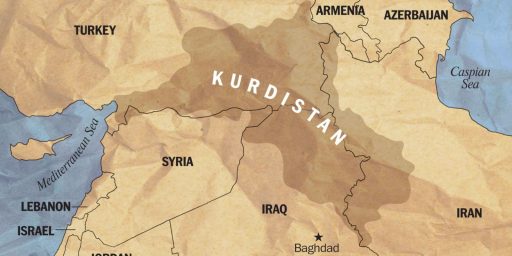U.S. Works to Sustain Iraq Coalition
WaPo – U.S. Works to Sustain Iraq Coalition
MSNBC – U.S. works to sustain Iraq coalition
The Bush administration faces growing challenges in holding together the 32-nation coalition deployed in Iraq, with four countries already gone, another four due to leave by September and others now making known their intention to wind down or depart before the political transition is complete next year, according to officials from 28 participating countries.
The drama over the Filipino hostage in Iraq, which led the Philippines government to say this week that it will pull out before its August mandate expires, is only the latest problem — and one of the smaller issues — in U.S. efforts to sustain the 22,000-strong force that, with 140,000 U.S. troops, forms the multinational force trying to stabilize postwar Iraq. Norway quietly pulled out its 155 military engineers this month, leaving behind only about 15 personnel to assist a new NATO-coordinated effort to help train and equip Iraqi security forces. New Zealand intends to pull out its 60 engineers by September, while Thailand plans to withdraw its more than 450 troops that same month, barring a last-minute political reversal that Thai officials consider unlikely, say envoys from both countries. “It’s 90 percent definite that we’re going,” a Thai diplomat said. The Netherlands is likely to pull out next spring after the first of three Iraqi elections, while Polish military officials told the Pentagon that Poland’s large contingent will probably leave in mid-2005, other diplomats say.
Any dwindling of the coalition — by choice or after hostage seizures and other violence — further complicates the already difficult job of sustaining the multinational force, which is critical to Washington’s assertion that it has international support for the Iraq mission. It could also encourage further abductions or attacks to heighten the psychological pressure and undermine the U.S.-led mission, coalition diplomats say. “We think withdrawal sends the wrong signal and that it is important for people to stand up to terrorists and not allow them to change our behavior,” State Department spokesman Richard Boucher told reporters.
Some attrition was inevitable after the U.S.-led occupation officially ended on June 28, say envoys in Washington. “This was expected as sovereignty was handed over. Some have been desperate to get out of there, because they were handcuffed to the process,” said a diplomat from a prominent member of the coalition who spoke on the condition of anonymity because of the sensitivity of the issue. “In certain countries, public opinion was against them going in — so they were under political pressure that they either shouldn’t be there or they should be there only for so long. Sovereignty was always a point at which countries look at how long they’ll stay. It becomes a segue for pulling out,” he added.
***
In many ways, the symbolic importance of international participation has been at least as vital for the Bush administration as the often-limited military role the troops have played. And while administration officials have stressed the number of countries that have sent troops, others have noted the small size of many military contingents and the continued absence of some major powers. Several participating countries sent fewer than 100 troops. In other cases, forces diminished significantly over time. Moldova’s contingent is the smallest — down to 12 from 42. Singapore has quietly reduced its presence from 191 to 33.
The Bush administration contends the coalition is holding, pointing to the renewed troop commitments from large contributors such as Britain and Italy. “Their support has solidified as the political process has come to pass,” said Lincoln Bloomfield, assistant secretary of state for political-military affairs.
The presence of troops from places such as the Philippines and El Salvador was symbolically nice, although tactically irrelevant. Still, one hates to see them leave.
Washington Times helpfully notes that all is not lost:
Czech Troops to remain in Iraq until 2005
The Czech Republic will keep its troops in Iraq at least through the end of the year and stands ready to offer long-term economic and technical support to the new Iraqi government, Czech Foreign Minister Cyril Svoboda said yesterday in an interview. Mr. Svoboda said his government is committed to supporting the U.S.-led security force in Iraq and to maintaining strong U.S.-European ties, despite political troubles at home that have shaken the ruling coalition in Prague. “Our troops will see out their mission to the end of the designated term, which is the end of this year,” Mr. Svoboda said.
The Czech Republic, which has 92 troops in southern Iraq helping train Iraqi military police, would also be willing to continue with the training — either inside the country or in another country — after Dec. 31.
While the contingent is small, “New Europe” is on board.




